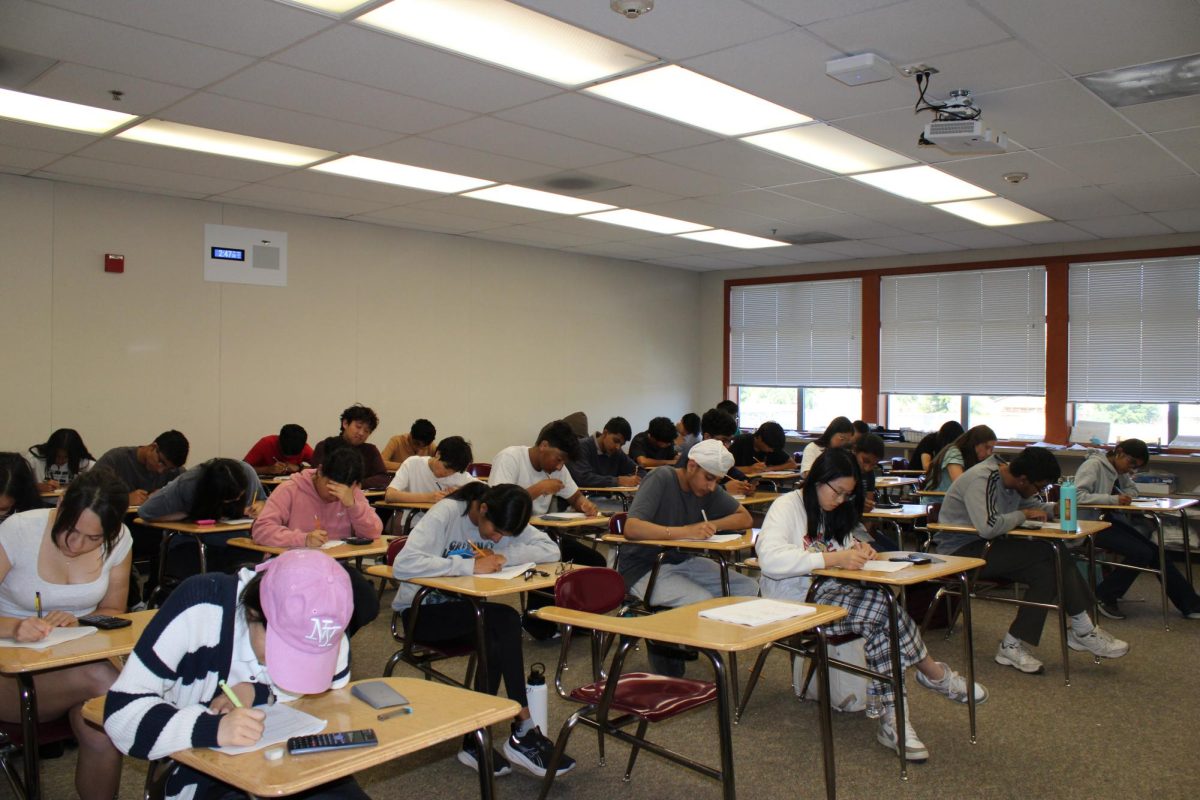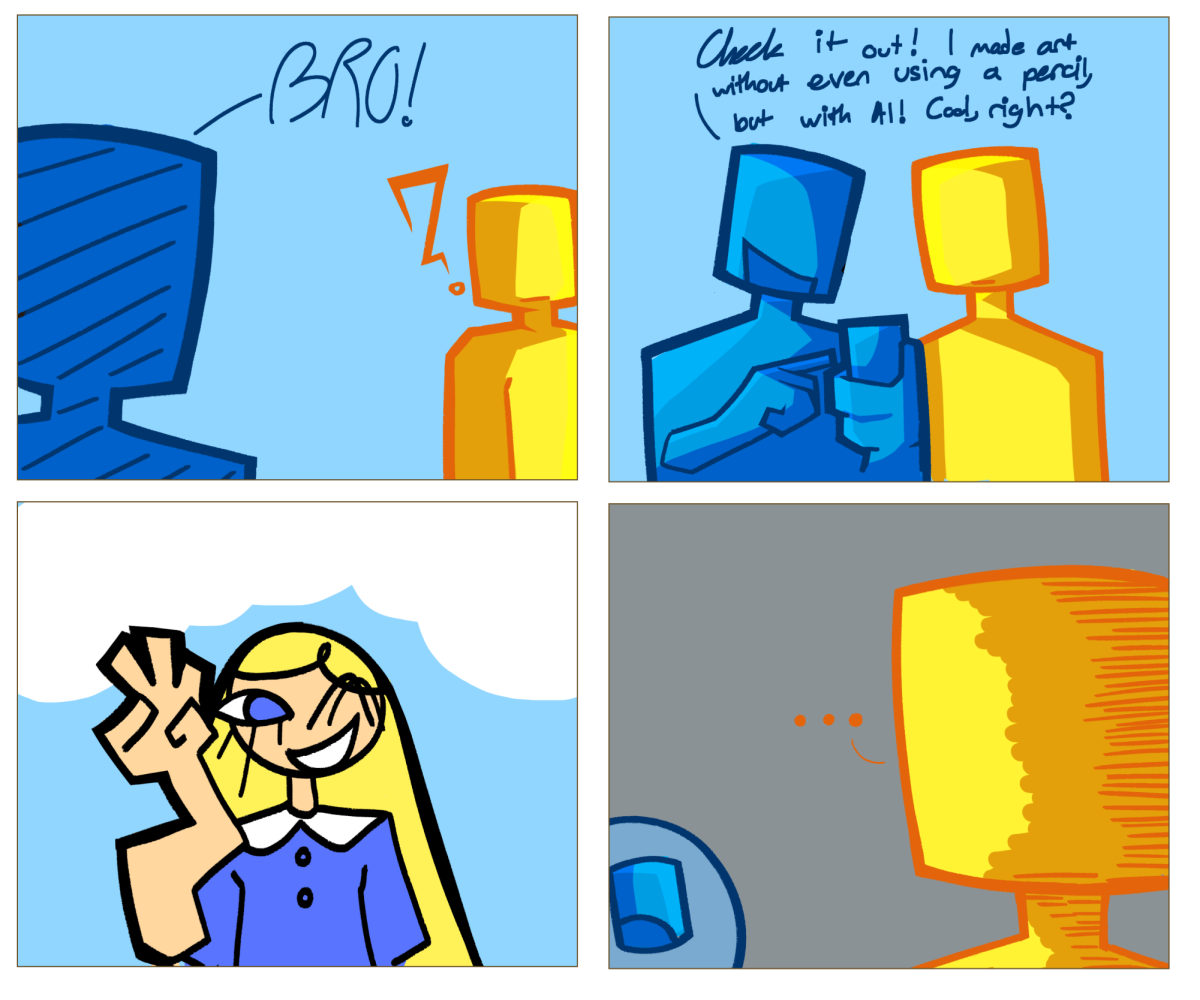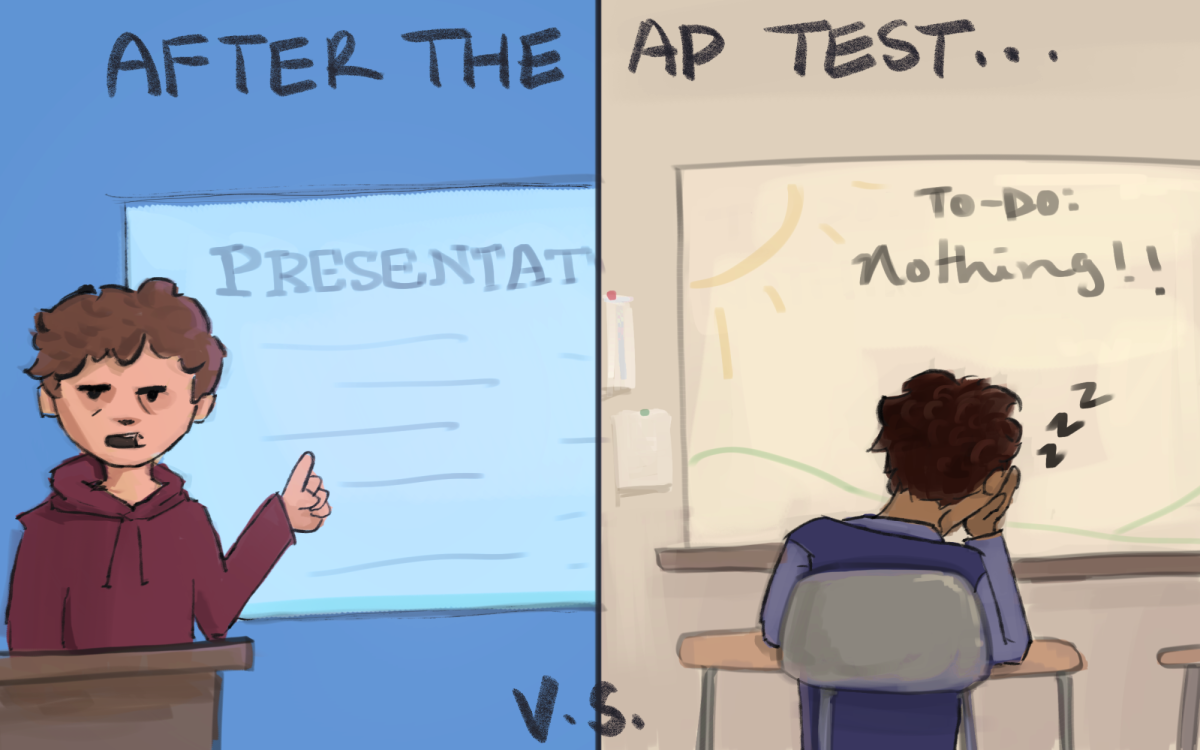Chromebooks have become essential in Cal High’s classrooms, providing students and teachers with educational tools. But while searching for some websites, it’s likely students will find the image of a gnome chewing a wire telling them that the page they are looking for is blocked.
Currently, website restrictions on school Chromebooks are determined by the San Ramon Valley Unified School District, leaving teachers and even principals with little to no say about what is blocked. While the school can put in a tech request if teachers need websites for their classes, the process places an unnecessary burden on educators and can be time-consuming.
Rather than forcing teachers to request the district to unblock certain sites, teachers should be able to amend what websites are blocked on Chromebooks themselves. If teachers were able to make real-time decisions about website access, it would streamline the educational process and foster a more dynamic learning environment.
The district’s website regulation is a one-size-fits-all approach that fails to acknowledge different requirements of individual classrooms and subjects. Each teacher has a distinct teaching style that would benefit from the ability to curate online content tailored to lesson plans, something they cannot do with the current system.
The absence of teacher input in website filtering decisions undermines their autonomy in the classroom. Teachers interact with students daily and are able to see firsthand how and what they need to learn. Since they understand students’ educational needs better than anyone, teachers should be entrusted with the responsibility of deciding which websites are relevant and appropriate for their classes.
Giving teachers the ability to manage website restrictions on school Chromebooks would not mean sacrificing students’ online safety or promoting reckless Chromebook use. Instead, it recognizes that educators are the most qualified to determine what websites students need or don’t need for their classes.
The current process of blocking websites on a district-wide level needs to change so teachers can have a direct role in determining what websites should be available. By allowing teachers to have a say in website filtering regulations, teachers will be able to tailor the online learning experience to fit the needs and demands of their classes.
Teachers should decide blocked sites, not district
December 15, 2023
More to Discover




